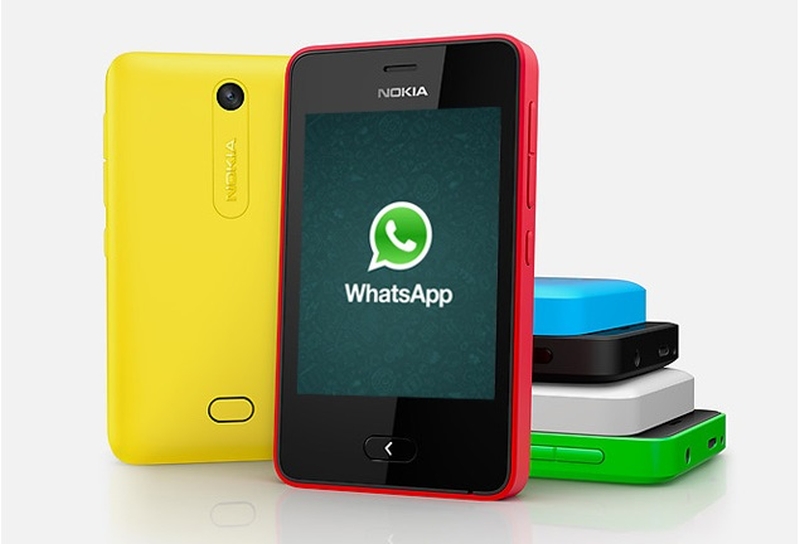- Home
- Internet
- Internet Features
- WhatsApp, Social Media Exempted, Says Government After Encryption Controversy
WhatsApp, Social Media Exempted, Says Government After Encryption Controversy

Hours After NDTV reported that how you use WhatsApp and other communication services on your phone could change dramatically, the government has said that a proposal under review will not apply to social media. Here is your 10-point cheatsheet to this big story:
The clarification from the government comes after public outrage over what was posted online as a draft proposal of a new national encryption policy.
When you send a WhatsApp message, it's automatically encrypted or turned into scrambled text, which is then unscrambled for the person you're messaging.
In the case of WhatsApp and other services like Apple's iMessage, this encryption happens automatically using keys at both ends of the conversation - as a user, you don't need to do anything.
The language of the proposal thrown open to the public for feedback alarmed alarmed experts, not least because it said that users must be able to provide unscrambled or plain text messages for up to 90 days (see the original document here).
The draft from a department of the IT Ministry also stated this: "Service Providers located within and outside India, using encryption technology for providing any type of services in India must enter into an agreement with the Government for providing such services in India."
This language was loose enough to apply to apps and services like WhatsApp, which has over 70 million users in India, and iMessage. After a backlash online, the government said that social media, Internet banking and e-commerce are exempt from the new guidelines being discussed.
For other categories, if the proposal goes through, platforms or services that don't register how they encrypt messages in India could be declared illegal.
Businesses that don't involve "mass use encryption products" (Internet banking, social media and e-commerce, for example) are also expected to maintain encrypted and plaintext (unscrambled) copies of all their communication, and share their encryption keys with the government authorities when asked.
In 2010, the UPA government said it would ban BBM (Blackberry Messenger Service) in India unless BlackBerry (then Research in Motion) gave security agencies access to snoop on emails. The two would eventually reach an arrangement that allows the government to intercept messages sent on Blackberry's platform.
You can share feedback on the proposed national encryption policy by emailing akrishnan@deity.gov.in.
Catch the latest from the Consumer Electronics Show on Gadgets 360, at our CES 2026 hub.
Related Stories
- Samsung Galaxy Unpacked 2025
- ChatGPT
- Redmi Note 14 Pro+
- iPhone 16
- Apple Vision Pro
- Oneplus 12
- OnePlus Nord CE 3 Lite 5G
- iPhone 13
- Xiaomi 14 Pro
- Oppo Find N3
- Tecno Spark Go (2023)
- Realme V30
- Best Phones Under 25000
- Samsung Galaxy S24 Series
- Cryptocurrency
- iQoo 12
- Samsung Galaxy S24 Ultra
- Giottus
- Samsung Galaxy Z Flip 5
- Apple 'Scary Fast'
- Housefull 5
- GoPro Hero 12 Black Review
- Invincible Season 2
- JioGlass
- HD Ready TV
- Laptop Under 50000
- Smartwatch Under 10000
- Latest Mobile Phones
- Compare Phones
- Realme Neo 8
- OPPO Reno 15 FS
- Red Magic 11 Air
- Honor Magic 8 RSR Porsche Design
- Honor Magic 8 Pro Air
- Infinix Note Edge
- Lava Blaze Duo 3
- Tecno Spark Go 3
- Acer Chromebook 311 (2026)
- Acer Chromebook Spin 311
- Lenovo Idea Tab Plus
- Realme Pad 3
- Moto Watch
- Garmin Quatix 8 Pro
- Haier H5E Series
- Acerpure Nitro Z Series 100-inch QLED TV
- Asus ROG Ally
- Nintendo Switch Lite
- Haier 1.6 Ton 5 Star Inverter Split AC (HSU19G-MZAID5BN-INV)
- Haier 1.6 Ton 5 Star Inverter Split AC (HSU19G-MZAIM5BN-INV)







![[Sponsored] Haier C90 OLED TV | Dolby Vision IQ, 144Hz OLED and Google TV in Action](https://www.gadgets360.com/static/mobile/images/spacer.png)









